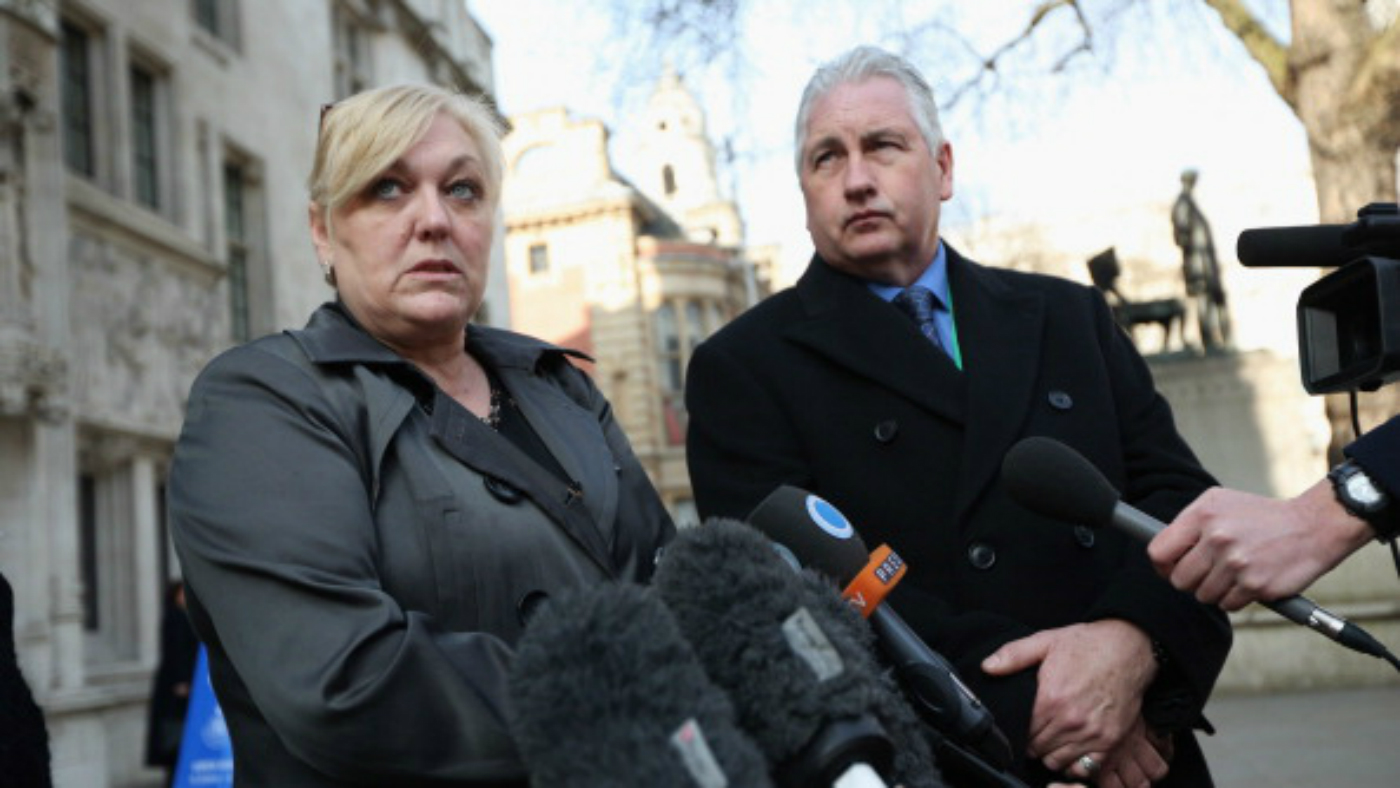MoD apologises over Snatch Land Rover death in Iraq
Mother finally wins apology for son's death in vehicle dubbed a 'mobile coffin'

A free daily email with the biggest news stories of the day – and the best features from TheWeek.com
You are now subscribed
Your newsletter sign-up was successful
After years of campaigning and a legal battle that went to the Supreme Court, Susan Smith has received an apology from the Ministry of Defence for the death of her son, Private Phillip Hewett.
Hewett was killed by a roadside bomb while in a lightly armoured Snatch Land Rover, the ninth of 37 service personnel to die in the vehicles in Iraq and Afghanistan.
"He didn't die for nothing," Smith told the BBC.
The Week
Escape your echo chamber. Get the facts behind the news, plus analysis from multiple perspectives.

Sign up for The Week's Free Newsletters
From our morning news briefing to a weekly Good News Newsletter, get the best of The Week delivered directly to your inbox.
From our morning news briefing to a weekly Good News Newsletter, get the best of The Week delivered directly to your inbox.
In his written apology, Defence Secretary Sir Michael Fallon said that the UK government "entirely" accepts the findings of Sir John Chilcot's July 2016 report into the Iraq war in relation to Snatch Land Rover, the Daily Telegraph reports. Chilcot made it clear that the Ministry of Defence knew about the vehicle's vulnerability and failed to provide more heavily armoured vehicles.
"I would like to express directly to you my deepest sympathies and apologise for the delay, resulting in decisions taken at the time in bringing into service alternative protected vehicles which could have saved lives," Fallon wrote.
Soldiers dubbed the vehicles "mobile coffins" because of the vehicle's lack of armour. Jocelyn Cockburn, a lawyer for the families concerned, told The Guardian that the Ministry of Defence's stance of "delay, deny and defend" has caused "untold suffering to already grief-stricken families over a needlessly long period".
A free daily email with the biggest news stories of the day – and the best features from TheWeek.com
-
 The ‘ravenous’ demand for Cornish minerals
The ‘ravenous’ demand for Cornish mineralsUnder the Radar Growing need for critical minerals to power tech has intensified ‘appetite’ for lithium, which could be a ‘huge boon’ for local economy
-
 Why are election experts taking Trump’s midterm threats seriously?
Why are election experts taking Trump’s midterm threats seriously?IN THE SPOTLIGHT As the president muses about polling place deployments and a centralized electoral system aimed at one-party control, lawmakers are taking this administration at its word
-
 ‘Restaurateurs have become millionaires’
‘Restaurateurs have become millionaires’Instant Opinion Opinion, comment and editorials of the day
-
 Home Office worker accused of spiking mistress’s drink with abortion drug
Home Office worker accused of spiking mistress’s drink with abortion drugSpeed Read Darren Burke had failed to convince his girlfriend to terminate pregnancy
-
 In hock to Moscow: exploring Germany’s woeful energy policy
In hock to Moscow: exploring Germany’s woeful energy policySpeed Read Don’t expect Berlin to wean itself off Russian gas any time soon
-
 Were Covid restrictions dropped too soon?
Were Covid restrictions dropped too soon?Speed Read ‘Living with Covid’ is already proving problematic – just look at the travel chaos this week
-
 Inclusive Britain: a new strategy for tackling racism in the UK
Inclusive Britain: a new strategy for tackling racism in the UKSpeed Read Government has revealed action plan setting out 74 steps that ministers will take
-
 Sandy Hook families vs. Remington: a small victory over the gunmakers
Sandy Hook families vs. Remington: a small victory over the gunmakersSpeed Read Last week the families settled a lawsuit for $73m against the manufacturer
-
 Farmers vs. walkers: the battle over ‘Britain’s green and pleasant land’
Farmers vs. walkers: the battle over ‘Britain’s green and pleasant land’Speed Read Updated Countryside Code tells farmers: ‘be nice, say hello, share the space’
-
 Motherhood: why are we putting it off?
Motherhood: why are we putting it off?Speed Read Stats show around 50% of women in England and Wales now don’t have children by 30
-
 Anti-Semitism in America: a case of double standards?
Anti-Semitism in America: a case of double standards?Speed Read Officials were strikingly reluctant to link Texas synagogue attack to anti-Semitism